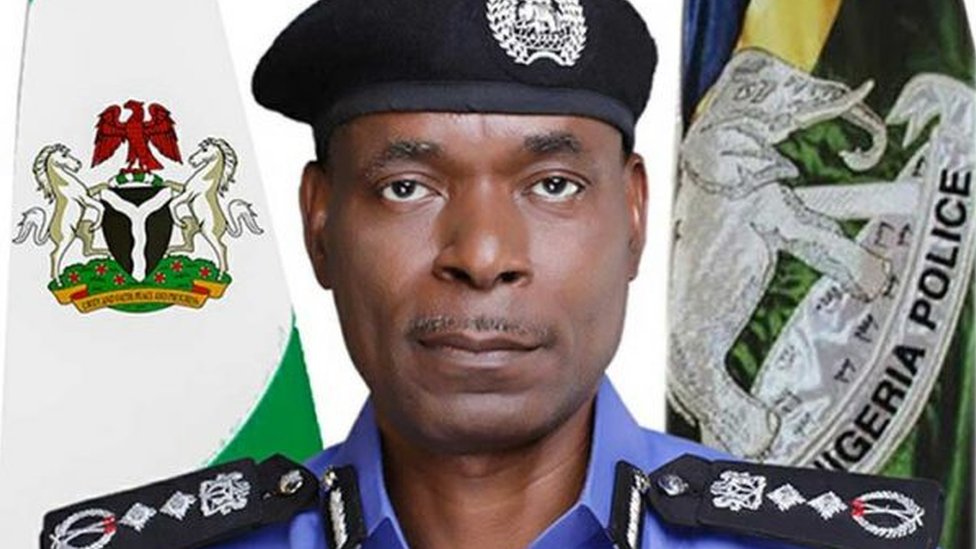Lawyers on Tuesday said President Muhammadu Buhari’s dilly-dallying in appointing a new Inspector-General of Police and allowing incumbent Mohammed Adamu to remain in office constituted a breach of the constitution and the rule of law.
Adamu, who was due for retirement on Monday on attaining the statutory retirement age of 35 years in service, is staying tight in the absence of a clear directive from the Presidency.
- Attacks on Fulani in S/West: Act now before we lose Nigeria, Tofa tells Buhari
- OBITUARY: Tony Momoh, the 165th child of Edo monarch who defended Buhari till he died
An impeccable source at the Force Headquarters told our correspondent on phone that Adamu came to office earlier in the day.
“I saw the IG and his men at Force headquarters but he didn’t hold any function. Of course, I’d know if he had held any function. He only came for final touches,” the source said.
Buhari, who returned from a four-day visit to his country home of Daura Tuesday evening, was received by Adamu and other top administration’s officials at the presidential wing of the Nnamdi Azikiwe International Airport, Abuja.
Speculations about acting IGP
Speculations were rife on Tuesday that an acting police boss had been appointed, but checks by Daily Trust showed that the new Police Act does not give room for appointment in acting capacity.
Four lawyers, who spoke to Daily Trust on Tuesday, were unanimous in describing Adamu’s stay in office beyond February 1 as a violation of the constitution.
A Senior Advocate of Nigeria, Mike Ozekhome, while criticizing the government’s lack of proactivity in appointing a replacement for the retiring IGP, said Adamu in the eyes of the law automatically ceased to be IGP on February 1 as he had completed the statutory service years of 35 years.
Breach of Constitution
In his reaction, Dayo Akinlaja (SAN) said the action was a breach of the new Police Act and the Nigerian Constitution which could be challenged in court.
“What’s being done is certainly indefensible under the constitution and the law of the land. That’s clear enough,” he said.
Another lawyer, Abdul Mohammed (SAN) said “It is alarming that in spite of the clear provisions of the law, the Inspector-General of Police who, presumably, is expected to enforce all the laws of the land, is the one flouting [them] by coming to office under the guise of awaiting the decision of the President who is said to be in Daura.
“Perhaps they want us to believe that the country cannot be run until the President is in Abuja otherwise this conduct is an exhibition of the disease of African leaders known as the ‘sit tight syndrome”.
A legal practitioner, Sagir Gezawa, said the implications of the Police Act show that Adamu ceases to be a policeman from February 1.
He said any job that has a statutory flavour in which a law determines everything around employment, the provisions have to be followed strictly.
“Except there’s express provision where the employer issues a new engagement under fresh terms, the employment is terminated by effusion of time,” he said.
He said it was illegal for Adamu to add a single day in office without “express communication from the president on fresh terms”.
‘No reason for stalemate’
A former Minister of Police Affairs, Adamu Maina Waziri, on Tuesday said Buhari had no reason to keep Nigerians in suspense on the appointment of a new IGP.
In an exclusive interview with Daily Trust, Waziri, who was Minister of Police Affairs under former President Goodluck Jonathan, said the drama surrounding the appointment of a new IG was eroding public trust in Buhari’s administration.
“The president shouldn’t have waited for a situation whereby on February 1, no official announcement in any form is made on either a new IGP or the extension of the current IGP, because failure to do that would lead to the erosion of public confidence in the administration. This is one of the drawbacks of this administration,” he said.
He said he expected the incumbent Minister of Police Affairs to have made a statement on behalf of the Presidency on whether the tenure of Adamu had been extended or not.
“Whichever it could be, there should be no reason for people to be left in suspense.
“The minister, whose beat is to provide political leadership, ought to, before February 1st, develop a policy strategy on the appointment of the IGP and present it to the president for approval. It’s possible that he has done so, but the communication, which is a bit slow of this government, hasn’t been able to facilitate that,” he said.
Maina lamented that from 1999, the police had suffered “leadership casualty, especially at the top echelon.”
He said: “When the IGP is appointed from a junior cadre, the consequence of that is that superior officers to the appointed person are all retired.”
By Abdulaziz Abdulaziz, John Chuks Azu, Idowu Isamotu, Ismail Mudashir & Hamisu Kabir Matazu

 Join Daily Trust WhatsApp Community For Quick Access To News and Happenings Around You.
Join Daily Trust WhatsApp Community For Quick Access To News and Happenings Around You.


